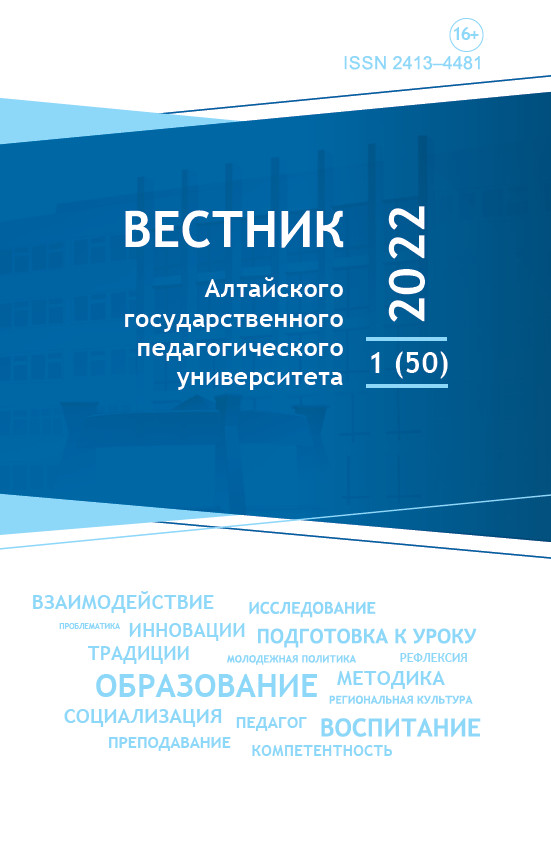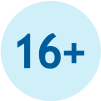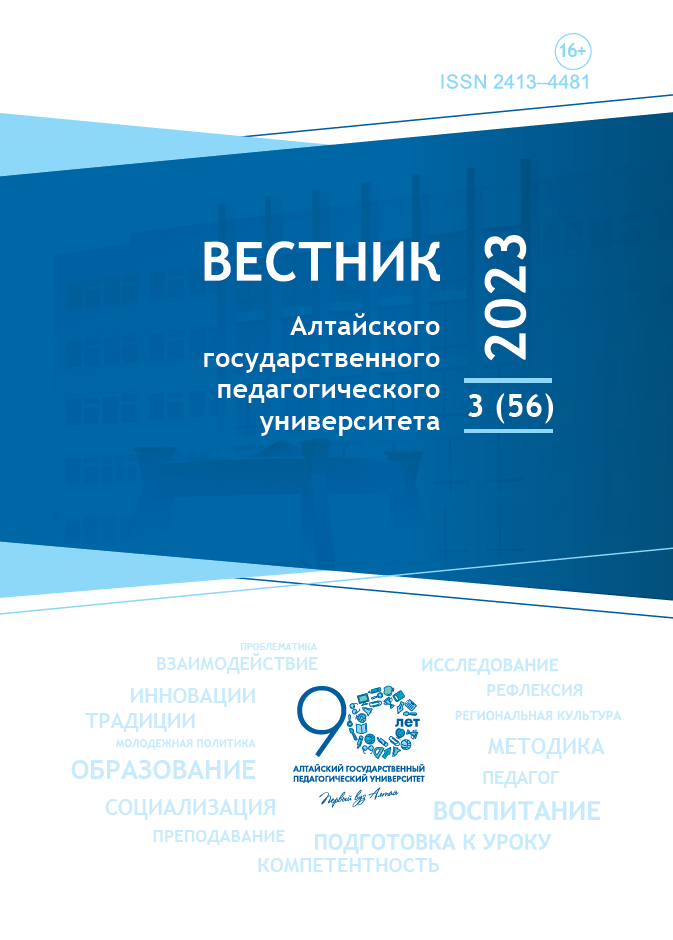DIDACTIC FEATURES OF THE IMPLEMENTATION OF DIGITAL TEXTBOOKS IN THE EDUCATIONAL PROCESS OF A MILITARY UNIVERSITY
DOI:
https://doi.org/10.37386/2413-4481-2022-1-24-29Keywords:
textbook, digital textbook, hypertext technology, teaching technology, quality of education, upbringingAbstract
The article considers the problem of introducing digital textbooks into the educational process of a military university. Informatization of military education reveals the digital inequality of students of military universities, and as a result, defines stringent requirements for a digital textbook in educational institutions of the RF Ministry of Defense. Digital textbooks are annually updated, and only if getting a positive review they can be used at the university during one academic year. The results of surveys of students and teaching staff of two military universities of the Ministry of Defense of the Russian Federation confirmed the hypothesis that the use of digital textbooks requires developed didactic conditions for the introduction of innovative textbooks at the university and methodological recommendations for the use of these modern textbooks by students.References
Овчинникова К. Р. Учебник и электронный учебник: исторический экскурс // Сибирский педагогический журнал. 2007. № 8. URL: https://cyberleninka.ru/article/n/uchebnik-i-elektronnyy-uchebnik-istoricheskiy-ekskurs (дата обращения: 11.02.2022).
Electronic versus traditional print textbooks: A comparison study on the influence of university students’ learning / A. J. Rockinson-Szapkiw, J. Courduff, K. Carter, D. Bennett // Computers & Education. 2013. Vol. 63. P. 259-266.
Junco R., Clem C. Predicting course outcomes with digital textbook usage data // The Internet and Higher Education. 2015. Vol. 27. P. 54-63.
Books or laptops? The effect of shifting from printed to digital delivery of educational content on learning / R.Bando, F. Gallego, P. Gertler, D. R. Fonseca // Economics of Education Review. 2017. Vol. 61. P. 162-173.
Sheen K. A., Luximon Ya. Effect of in-app components, medium, and screen size of electronic textbooks on reading performance, behavior, and perception // Displays. 2021. Vol. 66. Article number 101986.
Аленичева Е., Монастырев Н. Электронный учебник (проблемы создания и оценки качества) // Высшее образование в России. 2001. № 1. С. 121-123.
On powerpointers, clickerers, and digital pros: Investigating the initiation of digital learning activities by teachers in higher education / A. Lohr, M. Stadler, F. Schultz-Pernice // Computers in Human Behavior. 2021. Vol. 119. Article number 106715. URL: https://doi.org/10.1016/j.chb.2021.106715 (дата обращения: 11.02.2022).
Verkijika S. F. Digital textbooks are useful but not everyone wants them: The role of technostress // Computers & Education. 2019. Vol. 140. Article number 103591. URL: https://doi.org/10.1016/j.compedu.2019.05.017 (дата обращения: 11.02.2022).
The role of textbook learning resources in e-learning: A taxonomic study / K. H. Lau, T. Lam, B. H. Kam // Computers & Education. 2018. Vol. 118. P. 10-24.
Lacka E., Wong T. C., Haddoud M. Ya. Can digital technologies improve students’ efficiency? Exploring the role of Virtual Learning Environment and Social Media use in Higher Education // Computers & Education. 2021. Vol. 163. Article number 104099. URL: https://doi.org/10.1016/j.compedu.2020.104099 (дата обращения: 11.02.2022).
Baron N. S. Know what? How digital technologies undermine learning and remembering // Journal of Pragmatics. 2021. Vol. 175. P. 27-37.
Bawa P. Learning in the age of SARS-COV-2: A quantitative study of learners’ performance in the age of emergency remote teaching // Computers and Education. 2020. Vol. 1. Article number 100016. URL: https://www.ncbi.nlm.nih.gov/pmc/articles/PMC7649631/(дата обращения: 11.02.2022).
Ivanov I., Cobo Je. C., Kosonogova M. Implementation of developmental education in the digital learning environment // Procedia Computer Science. 2020. Vol. 172. P. 517-522.
Sheen K. A., Luximon Ya. Relationship between Academic Discipline and User Perception of the Future of Electronic Textbooks // Procedia Manufacturing. 2015. Vol. 3. P. 5845-5850.
Kropman M., Schoch H. P., Teoh Ha. Ya. An Experience in E-learning: Using an Electronic Textbook // In Beyond the Comfort Zone. ASCILITE Annu Conf. Perth, 2004. Р. 512-515.
Rai R. S., Selnes F. Conceptualizing task-technology fit and the effect on adoption - A case study of a digital textbook service // Information & Management. 2019. Vol. 56, Issue 8. Article number 103161.
Robert W. S., Baker-Eveleth L. Students’ expectation, confirmation, and continuance intention to use electronic textbooks // Computers in Human Behavior. 2013. Vol. 29. Issue 3. P. 984-990.
Беляев М. И. Из опыта создания электронных учебников. URL: https://cyberleninka.ru/article/n/iz-opyta-sozdaniya-elektronnyh-uchebnikov (дата обращения: 11.02.2022).
Ладынина О. А., Алексахин С. В., Тармин В. А. Внедрение электронных учебников в образовательные учреждения. URL: https://cyberleninka.ru/article/n/vnedrenie-elektronnyh-uchebnikov-v-obrazovatelnye-uchrezhdeniya (дата обращения: 11.02.2022).
Раецкая О. В. Информационная среда современного военного вуза. URL: https://mir-nauki.com/PDF/67PDMN517.pdf (дата обращения: 11.02.2022).
Федосеев А. А. Эффективный электронный учебник. URL: https://cyberleninka.ru/article/n/effektivnyy-elektronnyy-uchebnik (дата обращения: 11.02.2022).
Ильина М. А. Электронные учебные пособия и их важность в учебном процессе // Информационно-коммуникационные технологии в педагогическом образовании. 2012. № 3. С. 102-103.
Марченко А. Л. Актуальные вопросы разработки и использования электронных изданий и ресурсов в обучении электротехнике и электронике в вузе. URL: http://e.lanbook.com/book/1183 (дата обращения 11.02.2022).
Пискунова А. И. История педагогики и образования. От зарождения воспитания в первобытном обществе до конца XX в.: учеб. пособие для пед. учеб. заведений. М.: Эфесс, 2007. 496 с.
Козлова Е. И. Электронные учебные издания в современном вузе: учебно-методическое пособие. М.: Форум, 2014. 207 с.
Кручинин В. В. Компьютерные технологии в науке, образовании и производстве электронной техники. URL: http://e.lanbook.com/book/4945 (дата обращения 11.02.2022).
Макаров Р. Ю. Электронные учебные издания: характеристика и особенности подготовки // Общая и социальная педагогика. 2015. № 10. С. 56-60.
Электронный учебник: понятия, структура, требования / под ред. С. Н. Бутылина. 2-е изд., испр. и доп. М.: Академия, 2017. 300 с.
Колесникова Е. А. Проблемы современных электронных учебных изданий // Вестник Таджикского национального университета: серия гуманитарных наук. 2014. № 3. С. 213-215.
Downloads
Published
Issue
Section
License
Для публикации статьи в журнале «Вестник Алтайского государственного педагогического университета» автору необходимо заключить лицензионный договор с федеральным государственным бюджетным образовательным учреждением высшего образования «Алтайский государственный педагогический университет» (ФГБОУ ВО «АлтГПУ»).



